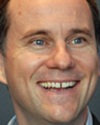
There are three basic components that made the Web possible: (1) the basic underlying infrastructure and the set of protocols that have existed for a very long time; (2) the open standards built that allowed every one to share information, link to each other, view client side source code of other people's web sites and figure out how to re-use it, etc. and (3) the democractic legal system and environment that made all of this possible.
These very conditions are under a threat. We should be worried. In the recent times, there have been a series of announcements from the International Telecommunication Union to control bandwidth allocation. The major telecommunication companies are quibbling with carriers to control how much bandwidth they can allocate and which services will be allowed. Content is being restricted. As a result of all this, the penetration of Internet adoption in the US is still slow. US ranks at number 25 to 27 in the list of countries and their Web penetration rates.
Service providers have monopolistic aspirations. For example, some websites today require that you have a Facebook account to use them. Companies have patents filed for the most ludicrous things.
We need to create an environment where businesses can use patents defensively as opposed to offensively.
Albert Wenger outlines the direction we must take to preserve our digital freedom and ensure that the Web continues to be an interesting place to spend time on.
Albert Wenger combines over 10 years of entrepreneurial experience with an in-depth technology background. As an entrepreneur, he has founded or co-founded five companies, including a management consulting firm (in Germany), a hosted data analytics company, a technology subsidiary for Telebanc (now E*Tradebank), an early stage investment firm, and most recently (with his wife), DailyLit, a service for reading books by email or RSS.
Albert also served as the president of del.icio.us through the company’s sale to Yahoo. His technology background goes back to winning the German national computer science competition at age 18. Albert graduated summa cum laude from Harvard College in economics and computer science and holds a Ph.D. in Information Technology from MIT. He has managed technology projects for organizations as diverse as Tacoda (startup) and Telebanc (leading Internet bank).
He currently serves on the boards of Clickable, a platform for managing online advertising; and Maptuit, a provider of realtime navigation; he is a board observer at Etsy, an online marketplace for handmade goods. Albert is married with three kids and lives in Scarsdale, New York.
Resources
This free podcast is from our Velocity Conference series.
For The Conversations Network:
Photo: http://www.usv.com/team/